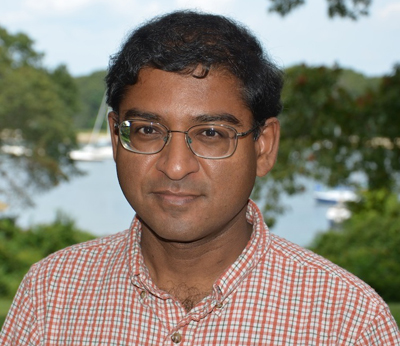Prabal Dutta receives Intel Early Career Faculty Honor Program Award

 Enlarge
Enlarge
Prabal Dutta, an Assistant Professor in the Electrical Engineering and Computer Science Department, is a recipient of the 2012 Intel Early Career Faculty Honor Program Award. This award provides financial and networking support to those faculty members who are early in their careers and who show great promise as future academic leaders in disruptive computing technologies. The purpose of this Program is to help promote the careers of promising early career faculty members and to foster long-term collaborative relationships with senior technical leaders at Intel. The winners this year are from eleven U.S. and nine European universities.
Since joining the University of Michigan in 2010, Professor Dutta’s research has pioneered practical, low-power platforms and wireless protocols for pervasive sensing, computing, and communications, typically by leveraging hardware/software insights and applying a whole-system approach that spans circuits to software to realize the computing class now emerging, in forms and names as diverse as sensor networks, Internet of Things, smart meters, wireless health, and many more. Collectively, they portend a future in which a trillion devices interact with a billion phones and a million servers. Although many of these devices will be tethered – with network and power – the majority will be untethered by necessity – communicating wirelessly and harvesting energy from their environments. These two essential attributes will enable them to be deployed in great numbers without overwhelming their owners.
The trillion devices will feed unimaginable volumes of data to the cloud for storage and processing and to mobile phones for interaction and display. New applications – like the Quantified Self, for example – will enable people to understand their behavior with empirical data collected in rates measured in Hz or kHz rather than an annual exam. The data tsunami will drive the demand for computing power. New “big data” storage and processing systems will be required to make sense of the exabytes of data about people and things that will be generated. New interfaces and display technologies will be needed to understand and present the new data. In short, the trillion new devices that comprise the next computing class will drive massive consumption of modern computing power. These devices will help us save ourselves, and our planet, from ourselves. Professor Dutta’s work aims to give us the platforms and protocols to realize these systems at scale an in the service of society.
Prof. Dutta received his PhD in Computer Science from the University of California, Berkeley. He has taught courses in Wireless Sensor Networks (EECS 598), Advanced Operating systems (EECS 582), and Design of Microprocessor Based Systems (EECS 373). He is affiliated with the Advanced Computer Architecture Laboratory in the Computer Science and Engineering Division of the EECS Department.
 MENU
MENU 
